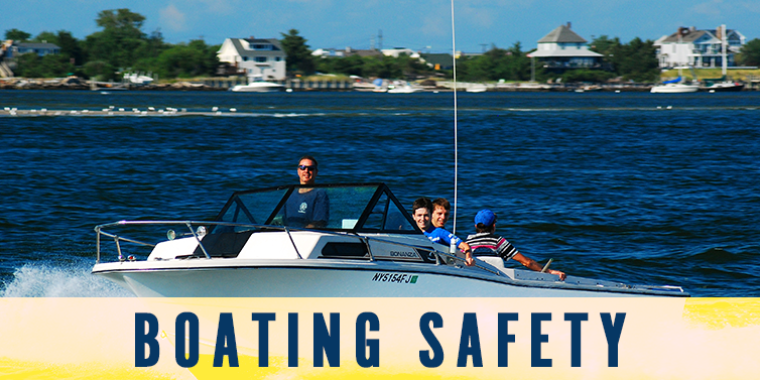
Boater Safety Information
John J. Flanagan
May 14, 2019
-
ISSUE:
- Boating Safety

Safe Boating Campaign website
New York State Park Boating website
United States Coast Guard Flotilla based in Stony Brook
United States Coast Guard Boating Safety Resource Center
United States Power Squadron: Organized in 1914, USPS is a non profit, educational organization dedicated to making boating safer and more enjoyable by teaching classes in seamanship, navigation and related subjects.
Please click here to find the Power Squardron closest to you
United States Power Squadron Boating Safety Test
The following information is from the Water Safety Page of the American Red Cross
• Learn to swim. The best thing anyone can do to stay safe in and around the water is to learn to swim. This includes anyone participating in any boating activity. The American Red Cross has swimming courses for people of any age and swimming ability. To enroll in a swim course, contact your local Red Cross chapter.
• Alcohol and boating don't mix. Alcohol impairs your judgment, balance, and coordination -- over 50 percent of drownings result from boating incidents involving alcohol. For the same reasons it is dangerous to operate an automobile while under the influence of alcohol, people should not operate a boat while drinking alcohol.
• Look for the label: Use Coast Guard-approved life jackets for yourself and your passengers when boating and fishing.
• Develop a float plan. Anytime you go out in a boat, give a responsible person details about where you will be and how long you will be gone. This is important because if the boat is delayed because of an emergency, becomes lost, or encounters other problems, you want help to be able to reach you.
• Find a boating course in your area (U.S. Power Squadron, the U.S. Coast Guard Auxiliary, US Sailing, etc) -- these courses teach about navigation rules, emergency procedures and the effects of wind, water conditions, and weather.
Watch the weather: Know local weather conditions and prepare for electrical storms.
Watch local news programs. Stop boating as soon as you see or hear a storm.
Share this Article or Press Release
Newsroom
Go to NewsroomEdward Borowski
June 1, 2010
